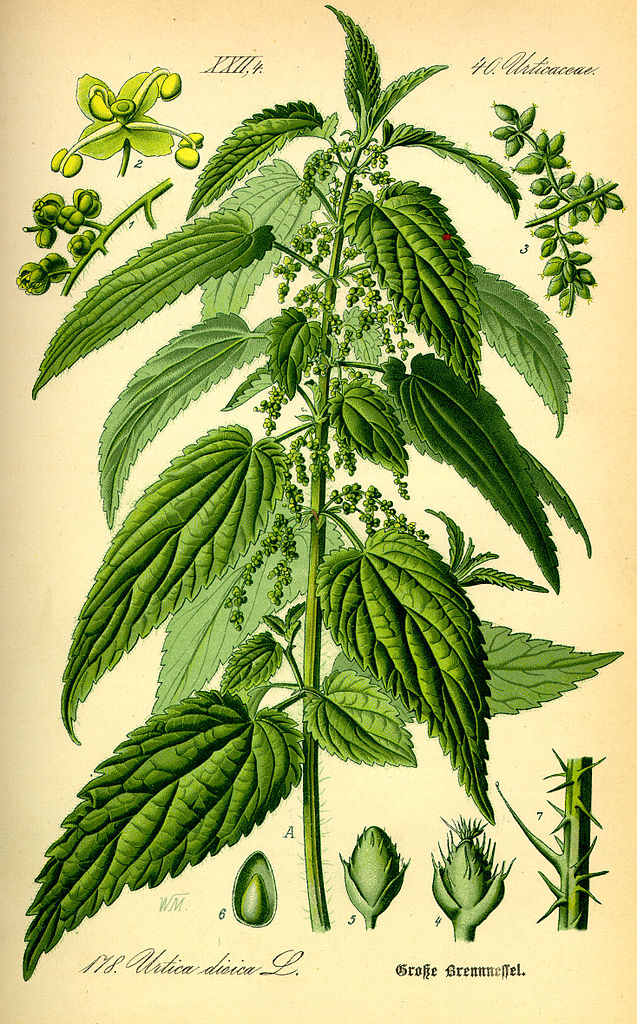Common Name(s): Common Nettle, Stinging Nettle
 |
Habitat: Stinging nettle was originally found in the cooler regions of Europe, Asia, and United States. But now it can be found in Canada, Africa, and South America as well. They grow well in temperate climates with lots of sun, and can be found by lakes and streams, and farms, ditches, gardens, railroad tracks and empty lots. The plant begins to grow in early spring and continues to grow until the last frost. It grows best in alkaline soils. Role and Impact: Stinging nettle often grows as a weed, which tends to make farmers want to pick and dispose of it. When picking stinging nettle, wearing thick gloves is suggested because of it’s painful sting. Some farmers also purposefully plant stinging nettle, because once picked, the leafs can be used to make food(soups, teas, etc) and medicines. It can reduce nose inflammation brought upon by a common cold. Stinging nettle is also used for muscle and joint pain, eczema, and arthritis. It reduces levels of inflammatory chemicals, by getting in the way of the pain signals the body sends out.
Encourage: Stinging nettle is a beneficial weed, that has many valuable aspects. For example, it provides habitat for the natural enemies of pests, such as ladybugs to aphids. One can encourage their growth, by having loose, moist, alkaline soil, with a layer of organic matter. Also, the stinging nettle produces more seeds in full sun than in partial or full shade. Experiences with the beneficial: I have come into contact with stinging nettle on the RHS farm, during my time as part of the companions group. We had to weed a large section of the “P” beds, and the gloves I was wearing had a hole in them so when I grabbed a stinging nettle, it stung me and I had the sharp hairs in my skin for a couple hours. Cultural information: The stinging nettle has impacted languages and phrases around the globe. For example, in german the phrase “sich in die Nesseln setzen”, that translates to, “to sit in nettle”, means to get in trouble. In French, “faut pas pousser mémé dans les orties”, which means “don’t push grandma in the nettle” is used to say don’t abuse the situation. In hungarian, “csalánba nem üt a mennykő”, means that “no lightning strikes the nettle”, which is used to express that bad things never happen to bad people. In English, the word “nettled”, which means irritated or angry, is derived from the word nettle.
Bibliography:
http://www.blueplanetbiomes.org/images/nettle.jpg
http://bioweb.uwlax.edu/bio203/2011/homolka_kail/habitat.htm
http://pennstatehershey.adam.com/content.aspx?productId=107&pid=33&gid=000275
https://depts.washington.edu/propplnt/Plants/Urtica%20dioica.htm
https://en.wikipedia.org/wiki/Urtica_dioica#Influence_on_language_and_culture
http://wildfoodshomegarden.com/StingingNettle.html

